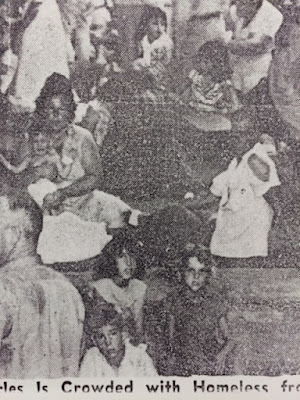WHIRLPOOLS, WORMHOLES, AND TIME TRAVEL
by Rita Monette
by Rita Monette
What do wormholes, whirlpools, and time travel have in common? In reality, probably nothing. But in Nikki Landry’s historical, yet fictitious world, legend has it that if you go into Lost Lagoon, you may never return, but just might enter into a land where strange creatures live.
A FICTITIOUS WHIRLPOOL
When a mad scientist arrives in Nikki Landry’s hometown and hears the legend of the mysterious Lost Lagoon, he decides to build a machine that can traverse a whirlpool—which he calculates just might be a wormhole to a prehistoric time.
Nikki has been warned to stay off Flat Lake due to the frequent whirlpools and strange disappearances. But snooping around Mr. Beekers’ camp boat gets her and her friends kidnapped and taken to a hidden inlet in a swamp off of the large lake. Soon they learn what’s behind the mystery on Lost Lagoon.
A REAL WHIRLPOOL
In reality, in the South Louisiana bayous, there are many, many salt caverns beneath the ground. There are also oil companies drilling for oil. Those two can spell disaster, especially if those caverns are under a lake.
One such disaster occurred in November of 1980, when an oil drilling rig and a salt mine created a whirlpool that became large enough to engulf the rig, eleven barges, and a tugboat, sucking water in from the Gulf of Mexico, and changing the landscape—as well as a once shallow fresh water lake—forever.
While drilling for oil off Lake Peigneur, near New Iberia, Louisiana, a drilling rig owned by Texaco, drilled too far and punctured into an active salt mine. Fishermen on the lake that day saw the whirlpool that began pulling their boat toward it. Luckily they got away before it sucked them into the abyss. Beneath, fifty-five miners, seeing the water rushing in, managed to escape via an elevator. Amazingly, no one lost their life, but it cost Texaco millions of dollars.
Read the story of Lake Peigneur here. https://www.damninteresting.com/lake-peigneur-the-swirling-vortex-of-doom/
AN EXCERPT:
Spikes stuffed the papers into his shirt. “I need to finish reading this.”
The three of us dashed for the door. But a shadow covered the opening, and Mr. Beekers stepped into it, blocking our way out.
He looked at the broken door and then glanced around his home. “What have y’all done to my house?” he scowled.
“We didn’t do it,” I said. “Honest we didn’t.”
“Don’t lie to me. You kids have been nosing around here before. What do you want here?”
“Just let us go,” Tim said. “We promise not to come back.”
“No, you’re not going anywhere until I see what you’ve taken...or destroyed.” He stepped in and closed the crooked door behind him. “Now all of you sit.”
Spikes found a chair. Tim and I pushed some newspapers to the side and sat on a tiny sofa with springs poking out.
“Now, which one of you broke my door in?”
“It was some men,” Tim said. “I think they were detectives or something. They had on suits and ties, and drove an official looking car.”
Mr. Beekers looked around, then ran to the window. “Where did they go?”
“They’re from Ohio,” I said. “I think they’re coming back. So you better let us go before they get here. Whatever you did, they might get you for kidnapping us too.”
“Oh, no you don’t,” he said. “I’m not letting you go. You brought them here, didn’t you?” His eyes were wild and his mouth turned into a snarl. His whole face turned really evil looking. “I know what they want, and they won’t get it.” He grabbed up some rope and began to tie Spikes to the chair.






















